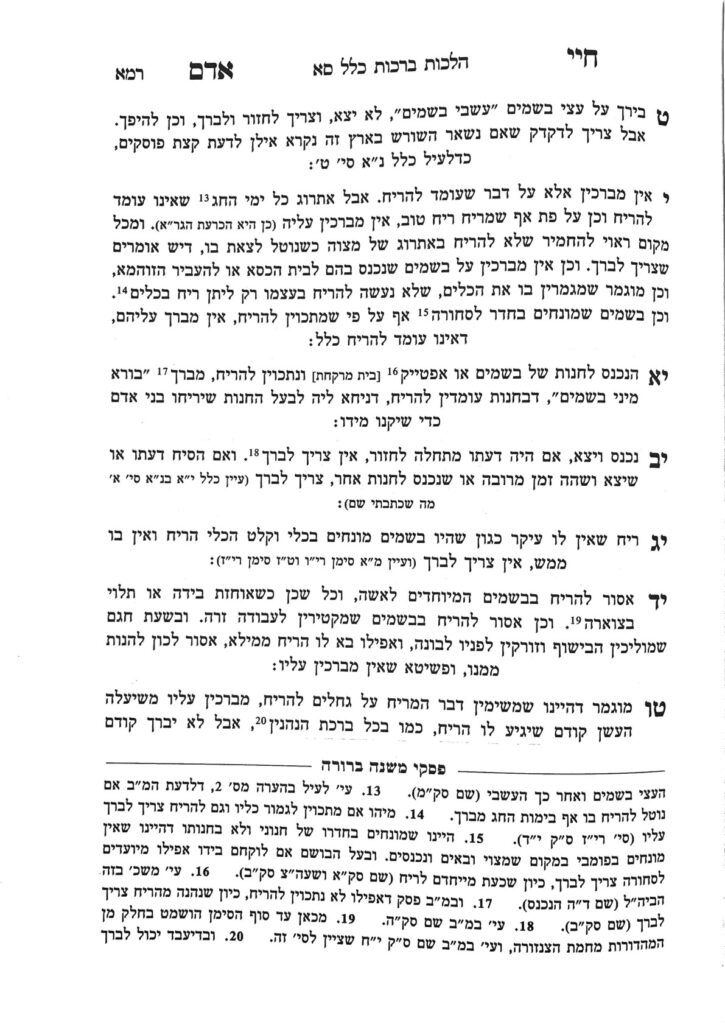We are continuing in siman 10. The Chayei Adam discusses the possibility of making a bracha on the smell of fresh bread.
If one does not pick up the bread, but the smell wafts to them, one does not make a bracha, because at that moment the primary function of the bread can be assumed as being for eating. If the bread is picked up to eat, we have learned (shiur 1173) that there is no bracha made on the smell. If one picks it up for both purposes, or solely for the purpose of smelling, according to the Mishnah Berurah, the action of picking up the bread creates deliberate intent that the function of the bread is now for smelling. In such a case, one could argue that the bread function of the bread is to smell it, and a bracha should be recited.
However, we have no source from the Gemara for such a bracha. Additionally, the Shulchan Aruch brings an opinion that the smell of bread is not considered a reiach choshuv. Therefore, the Rema writes that one should avoid picking up bread solely for the purpose of smelling it.
Similarly, one should avoid smelling an esrog when they are using it for a mitzvah, as we have learned previously (shiur 1183). It appears to have been a common practice in previous generations that people who were not as knowledgeable would smell their esrog as a part of their procedure when fulfilling the mitzvah, so the Chayei Adam makes it clear that one should avoid doing so. However, as we have learned (shiur 1183), if one wishes to smell their esrog after they have fulfilled the mitzvah, the Mishnah Berurah is of the opinion that one may do so.
The Chayei Adam continues discussing the halacha that one only makes the bracha of smell on an item which primarily functions for smell. He writes that spices which were placed in bathrooms and other places to mask bad smells do not function for smell, but rather as a mask, so one does not make a bracha on them. Similarly, they would burn incense under clothing to give them a good smell. Since the purpose of the incense is to put a good smell in the clothing, and not to be enjoyed for its own sake, one does not make a bracha on it. If one smells the clothing, they do not make a bracha either, because it is a reiach she’ein bo ikar (shiur 1179 and 1180).
Summary
- One should avoid picking up bread solely for the purpose of smelling it, or for the dual purpose of smelling and eating it. One does not make a bracha if they do so anyway.
- If the smell wafts towards a person without them picking it up, they may smell it and do not make a bracha.
- One should avoid smelling an esrog over the entire Sukkos.
- If one wishes to smell an esrog after they have used it to fulfil the mitzvah, they have what to rely on, but ideally should avoid doing so.
- One only makes the bracha of smell on an item which primarily functions for smell. Thus, items such as spices used to mask bad smells, or incense used to give clothing a good smell, do not receive a bracha.



